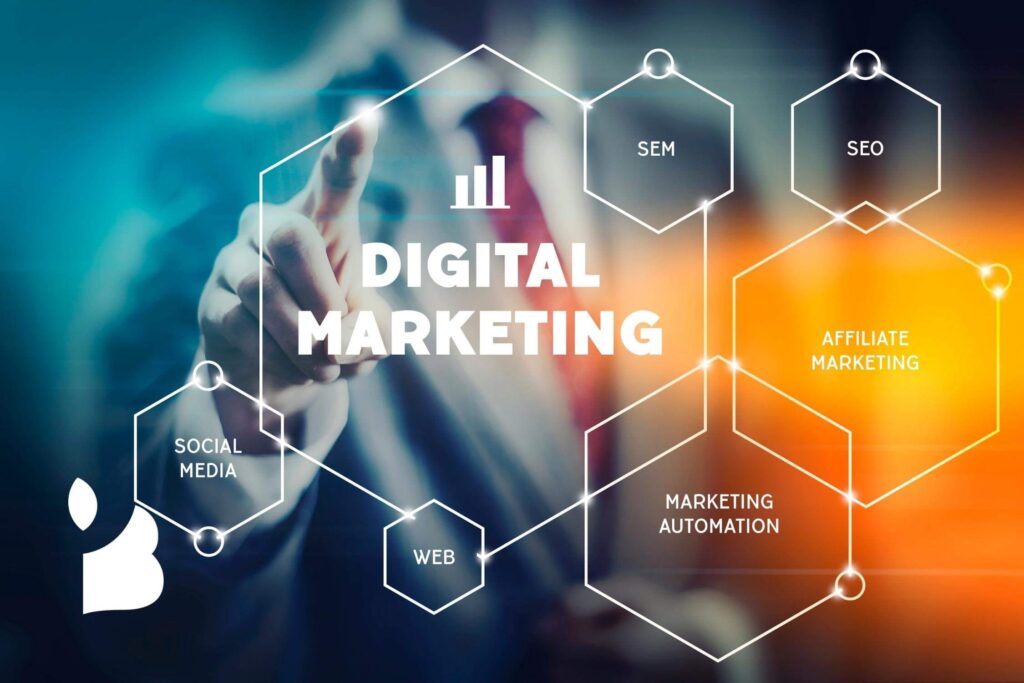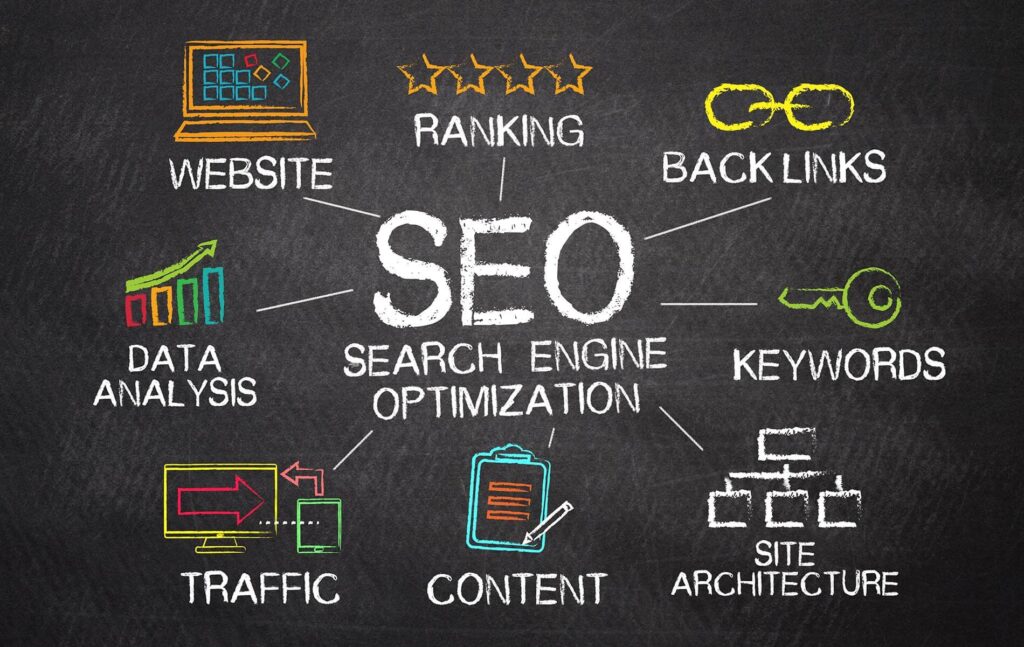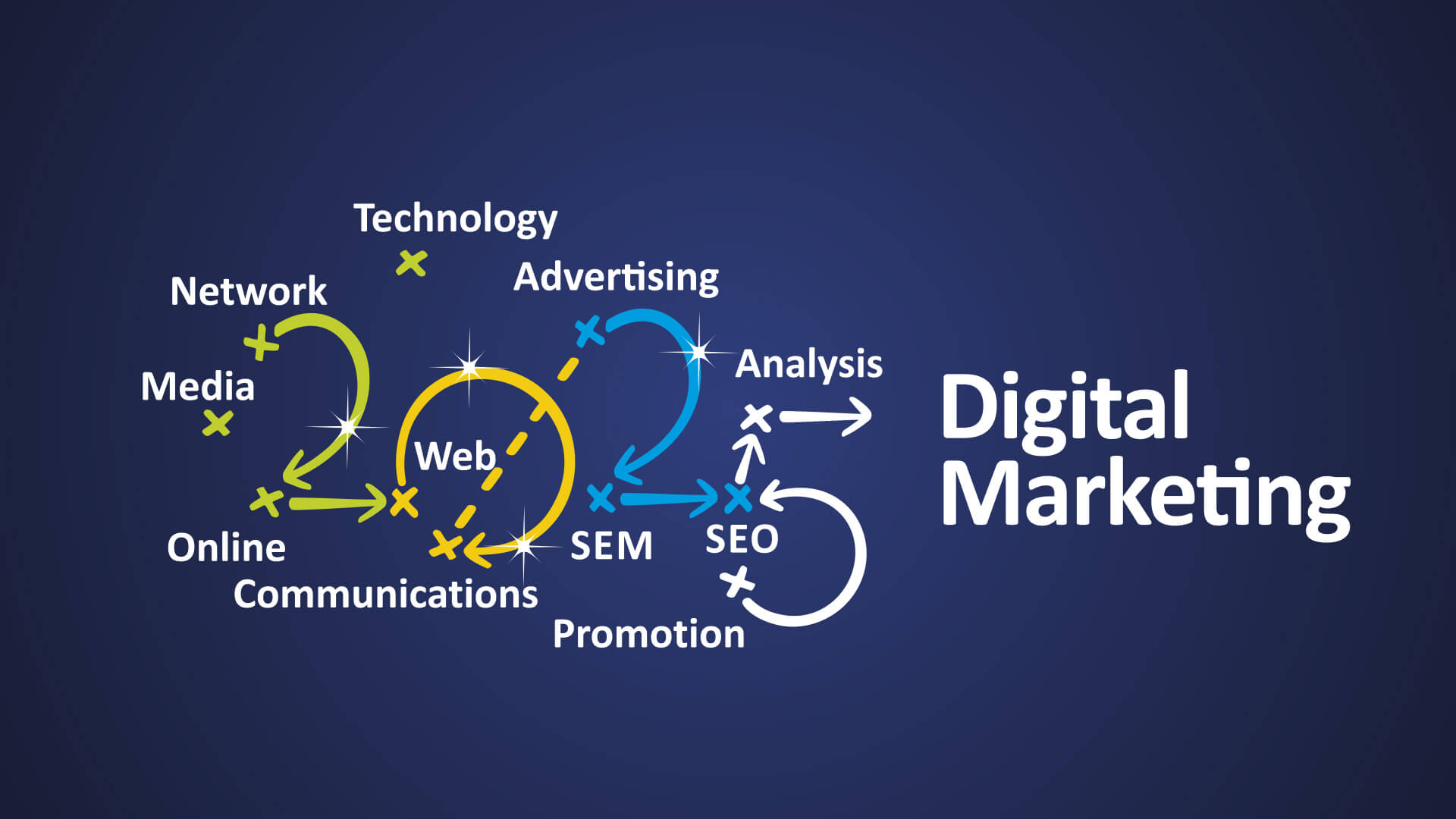
What is Digital Marketing?
A Beginner’s Guide to Growing Online
In today’s digital-first world, most people spend a significant amount of time online—whether browsing social media, searching on Google, or shopping on e-commerce platforms. Digital marketing is the strategy businesses use to connect with this online audience, promote their products or services, and grow effectively. Whether you’re looking to become a Social Media Marketing Expert or understand the broader landscape, this guide is your starting point.
Definition
Digital marketing is the use of internet-based platforms and electronic devices to promote a brand, product, or service. It focuses on reaching the right audience at the right time using channels like search engines, social media, email, websites, and mobile apps. A Social Media Marketing Expert uses these channels—especially platforms like Instagram, Facebook, and LinkedIn—to craft content strategies that drive engagement and visibility.
Evolution of Digital Marketing
Before the internet, businesses relied heavily on television, radio, print ads, and billboards to reach consumers. While these methods worked, they were expensive and lacked precise targeting.
With the rise of search engines in the late 1990s and social media platforms in the 2000s, marketing shifted. Today, digital marketing enables businesses to target specific demographics, measure results instantly, and personalize campaigns. The growth of smartphones further amplified this, making consumers accessible at nearly every moment of the day.
This evolution explains why businesses now prioritize digital channels over traditional advertising.
Why Digital Marketing Matters
-
Cost-Effective Growth
Running a Facebook ad or a Google campaign costs a fraction of what TV or print advertising does, yet it reaches a wider audience. -
Global Reach
Even small businesses can market their products globally using e-commerce, SEO, and social media strategies. -
Measurable Results
Analytics tools like Google Analytics and Meta Ads Manager allow businesses to track performance in real-time, adjusting campaigns for better ROI. -
Customer Engagement
Unlike one-way traditional ads, digital marketing allows two-way communication. A Social Media Marketing Expert can use polls, Q&A sessions, and comments to directly engage with the audience. -
Competitive Advantage
In a crowded marketplace, digital marketing helps brands stand out with unique storytelling, targeted campaigns, and consistent branding.
Core Areas of Digital Marketing
-
Search Engine Optimization (SEO)
Improving website ranking on Google to attract organic traffic. -
Search Engine Marketing (SEM)
Running paid ads on platforms like Google Ads to drive targeted traffic. -
Social Media Marketing (SMM)
Building communities and promoting content on Instagram, Facebook, LinkedIn, and TikTok. A Social Media Marketing Expert crafts tailored strategies to maximize reach, engagement, and brand loyalty. -
Content Marketing
Blogs, videos, infographics, and podcasts that inform, entertain, and build trust. -
Email Marketing
Sending personalized newsletters, offers, and updates directly to customers’ inboxes. -
Mobile Marketing
Leveraging apps, SMS campaigns, and push notifications to capture customer attention. -
Online Advertising
Display ads, video ads, and retargeting campaigns to stay top-of-mind.
How It Works
Digital marketing combines creativity with data. Businesses analyze consumer behavior, demographics, and interests to design personalized campaigns.
For example, if analytics reveal that most customers shop late at night, ads can be scheduled for those hours. Similarly, a Social Media Marketing Expert can study engagement metrics—likes, comments, shares—to refine content strategies.
Personalized campaigns significantly increase conversions because they address customer needs directly.
B2B vs. B2C Approach
-
B2B (Business-to-Business):
Focuses on nurturing relationships, providing detailed information, and generating high-quality leads. Strategies often include LinkedIn marketing, webinars, and long-form content. -
B2C (Business-to-Consumer):
Prioritizes fast engagement, emotional storytelling, and wider audience reach. Platforms like Instagram, Facebook, and TikTok dominate here, often guided by a Social Media Marketing Expert who knows how to create viral campaigns.
Tools Every Beginner Should Know
-
Google Analytics & Search Console – for website performance tracking.
-
Canva – for designing engaging social media posts.
-
HubSpot & Mailchimp – for email marketing automation.
-
SEMRush & Ahrefs – for SEO research.
-
Meta Business Suite – for managing Facebook & Instagram campaigns.
Learning these tools gives beginners a practical head start.
The Role of a Social Media Marketing Expert
A Social Media Marketing Expert is more than just someone who posts content. They:
-
Study audience behavior and trends.
-
Create platform-specific strategies (what works on Instagram may not work on LinkedIn).
-
Optimize posting times, formats, and hashtags.
-
Run paid ad campaigns for maximum ROI.
-
Monitor analytics and refine campaigns continuously.
Their expertise ensures that businesses not only gain followers but also convert them into loyal customers.
Future Trends in Digital Marketing
The digital landscape continues to evolve rapidly. Beginners should stay aware of upcoming trends, including:
-
AI & Automation – AI-driven tools can personalize emails, predict customer behavior, and even generate ad creatives.
-
Voice Search Optimization – With devices like Alexa and Google Assistant, optimizing for voice queries is crucial.
-
Influencer Marketing – Collaborating with influencers to reach niche audiences is becoming mainstream.
-
Video & Short-Form Content – TikTok, Instagram Reels, and YouTube Shorts dominate consumer attention.
-
Augmented & Virtual Reality (AR/VR) – Brands are exploring immersive experiences for product demos and virtual shopping.
A Social Media Marketing Expert who embraces these trends will remain highly valuable.
Practical Beginner Tips
-
Start Small: Pick one or two channels instead of trying everything at once.
-
Stay Consistent: Post regularly to build audience trust.
-
Learn Analytics: Measure results and adapt quickly.
-
Focus on Value: Create content that educates, entertains, or solves problems.
-
Network: Follow experts, join online groups, and keep learning.
Summary
Digital marketing is not just about advertising online—it’s a complete growth strategy. It helps businesses connect, engage, and convert customers through targeted campaigns. From SEO to social media, email marketing to analytics, it offers opportunities for every business type.
For aspiring marketers, especially those aiming to become a Social Media Marketing Expert, mastering digital marketing opens doors to global opportunities. And for businesses, it’s the most cost-effective, measurable, and impactful way to grow in today’s competitive digital age.
Blog
A Beginner’s Guide to Growing Online : In today’s digital-first world, businesses can’t rely only on traditional marketing…..
Blog
A Beginner’s Guide: It is possible to divide Search Engine Optimization (SEO) into two main categories: On-Page SEO and Off-Page SEO.
Blog
The Future of Digital Marketing: What to Expect in 2025 and Beyond :Digital marketing is evolving at lightning speed. The methods of yesterday may not meet the demands of tomorrow.



